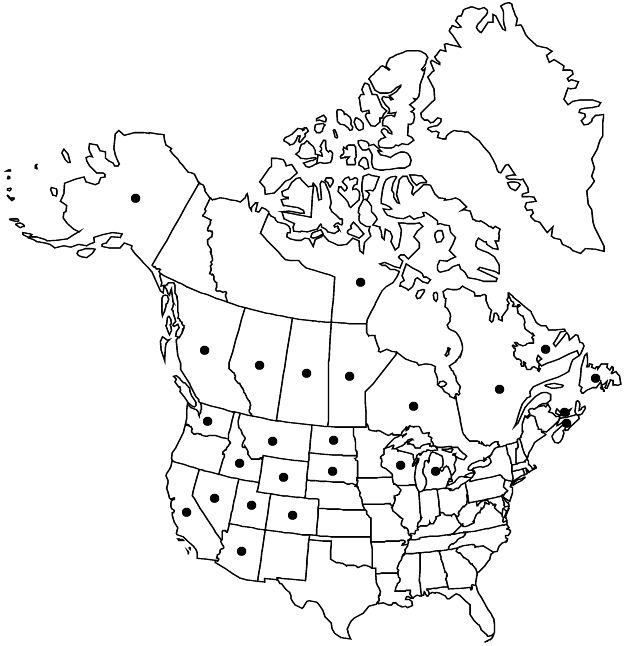Difference between revisions of "Parnassia parviflora"
Prodr. 1: 320. 1824.
FNA>Volume Importer |
FNA>Volume Importer |
||
| Line 15: | Line 15: | ||
|name=Parnassia palustris var. parviflora | |name=Parnassia palustris var. parviflora | ||
|authority=(de Candolle) B. Boivin | |authority=(de Candolle) B. Boivin | ||
| + | |rank=variety | ||
}} | }} | ||
|hierarchy=Celastraceae;Parnassia;Parnassia parviflora | |hierarchy=Celastraceae;Parnassia;Parnassia parviflora | ||
| Line 39: | Line 40: | ||
-->{{#Taxon: | -->{{#Taxon: | ||
name=Parnassia parviflora | name=Parnassia parviflora | ||
| − | |||
|authority=de Candolle in A. P. de Candolle and A. L. P. P. de Candolle | |authority=de Candolle in A. P. de Candolle and A. L. P. P. de Candolle | ||
|rank=species | |rank=species | ||
| Line 54: | Line 54: | ||
|publication year=1824 | |publication year=1824 | ||
|special status=Endemic | |special status=Endemic | ||
| − | |source xml=https://jpend@bitbucket.org/aafc-mbb/fna-data-curation.git/src/ | + | |source xml=https://jpend@bitbucket.org/aafc-mbb/fna-data-curation.git/src/eaa6e58056e40c9ef614d8f47aea294977a1a5e9/coarse_grained_fna_xml/V12/V12_380.xml |
|genus=Parnassia | |genus=Parnassia | ||
|species=Parnassia parviflora | |species=Parnassia parviflora | ||
Revision as of 18:57, 16 December 2019
Herbs with caudices. Stems 2–35 cm. Leaves: basal in rosettes; petiole 0.4–2 cm; blade (of larger leaves) ovate to oblong, 6–35 × 5–25 mm, base cuneate to subcordate, apex rounded to subacute; cauline on proximal 1/2 to middle of stem. Flowers: sepals spreading in fruit, linear-lanceolate to oblong or elliptic-oblong, 3–6 mm, margins not hyaline, entire, apex obtuse; petals 5–13-veined, oblong to elliptic, 3.5–10 × 4–6 mm, length 1.1–1.5 times sepals, base rounded to cuneate, margins entire; stamens (2–)4–7 mm; anthers 1–1.6 mm; staminodes obovate, divided distally into 5–7(–9) gland-tipped filaments, (2–)3.5–5 mm, shorter than stamens, apical glands suborbicular, 0.2–0.3 mm; ovary green. Capsules 7–10 mm. 2n = 36.
Phenology: Flowering summer.
Habitat: Wet, calcareous shores, meadows, fens, seepy scree slopes.
Elevation: 10–2900 m.
Distribution

Alta., B.C., Man., Nfld. and Labr., N.S., Nunavut, Ont., P.E.I., Que., Sask., Alaska, Ariz., Calif., Colo., Idaho, Mich., Mont., Nev., N.Dak., S.Dak., Utah, Wash., Wis., Wyo.
Discussion
Parnassia parviflora has been included in P. palustris by some authors. Small-flowered plants of P. palustris usually have the staminodes divided into about nine filaments distally and the anthers exceed 1.5 mm, but rarely some plants cannot be clearly assigned to one or other of these species. In Nunavut, P. parviflora is known only from Akimiski Island in James Bay.
Selected References
None.